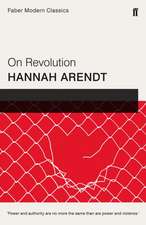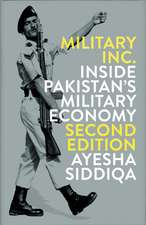Language-related Conflicts in Multinational and Multiethnic Settings: Success and Failure of Language Regimes
Autor Barbora Moormann-Kimákováen Limba Engleză Paperback – 25 noi 2015
Preț: 386.81 lei
Nou
Puncte Express: 580
Preț estimativ în valută:
74.01€ • 77.49$ • 61.24£
74.01€ • 77.49$ • 61.24£
Carte tipărită la comandă
Livrare economică 07-21 aprilie
Preluare comenzi: 021 569.72.76
Specificații
ISBN-13: 9783658111748
ISBN-10: 3658111747
Pagini: 278
Ilustrații: XI, 278 p. 8 illus.
Dimensiuni: 148 x 210 x 20 mm
Greutate: 0.39 kg
Ediția:2016
Editura: Springer Fachmedien Wiesbaden
Colecția Springer VS
Locul publicării:Wiesbaden, Germany
ISBN-10: 3658111747
Pagini: 278
Ilustrații: XI, 278 p. 8 illus.
Dimensiuni: 148 x 210 x 20 mm
Greutate: 0.39 kg
Ediția:2016
Editura: Springer Fachmedien Wiesbaden
Colecția Springer VS
Locul publicării:Wiesbaden, Germany
Public țintă
ResearchCuprins
The search for the optimal language regime.- The conflict potential of multilingualism.- Actors in language-related conflicts.- The dimensions of language-related conflicts.- Monolingualism.- Multilingualism without and with a lingua franca.
Notă biografică
Barbora Moormann-Kimáková received her doctorate in political science from the Institut für Sozialwissenschaften, Humboldt-Universität zu Berlin, Germany.
Textul de pe ultima copertă
In this book, Barbora Moormann-Kimáková analyses the possibility of finding an optimal language regime in multinational and multiethnic countries – either by defining the contents of an optimal language regime, or with the help of a criterion enabling to evaluate whether a language regime is optimal or not. The process of the selection or change of a language regime often becomes a matter of a language-related conflict. These conflicts are mostly accompanied by other political or social conflicts, as for example in Ukraine or former Yugoslavia, which render solutions – and their evaluation – difficult. The author claims that language regimes can be evaluated based on the increase or lack of their legitimacy in the eyes of the relevant actors. This is demonstrated in four language regime studies on the European Union, Soviet Union, Bosnia and Herzegovina, and South Africa.
Content
• Lecturers and students of the social sciences, humanities and sociolinguistics.
• Readers interested in language-related political issues and diversity politics.
About the Author
Barbora Moormann-Kimáková received her doctorate in political science from the Institut für Sozialwissenschaften, Humboldt-Universität zu Berlin, Germany.
Content
- The search for the optimal language regime
- The conflict potential of multilingualism
- Actors in language-related conflicts
- The dimensions of language-related conflicts
- Monolingualism
- Multilingualism without and with a lingua franca
• Lecturers and students of the social sciences, humanities and sociolinguistics.
• Readers interested in language-related political issues and diversity politics.
About the Author
Barbora Moormann-Kimáková received her doctorate in political science from the Institut für Sozialwissenschaften, Humboldt-Universität zu Berlin, Germany.
Caracteristici
Study in social sciences Includes supplementary material: sn.pub/extras







